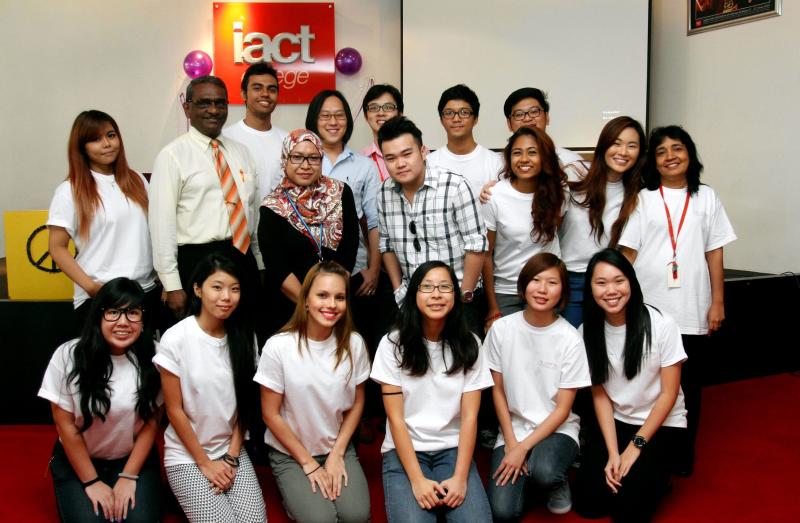We’ve all seen keyboard warriors at work before, flaming Facebook and yapping on YouTube. Now, get ready to meet the Keyboard Heroes.
A group of students from IACT College launched an initiative last week to get rid of cyberbullying by encouraging their friends to be keyboard heroes instead of warriors.

The IACT College students behind the “Keyboard Heroes” initiative with the guests at the project launch, (from second left) Gangadara Vadivel, President of the National Council of Befrienders Malaysia, Dr Adilah Sulaiman from University Malaya Medical Centre’s psychiatry department, R.AGE editor Ian Yee and YouTube star Reuben Kang.
Not sure what the difference is? People who post pointlessly terrible things on other’s Facebook pages, YouTube accounts and so on are called “keyboard warriors”. The clever students from IACT, therefore, are hoping to make this new term, keyboard heroes (the opposite of keyboard warriors, duh), stick.
The students invited YouTube star Reuben Kang (to share his personal experiences being cyberbullied), Dr Adilah Sulaiman from the University Malaya Medical Centre’s psychiatry department, Gangadara Vadivel from the national council of Befrienders Malaysia and R.AGE editor Ian Yee to speak during the launch of the project at the IACT Gallery in Jaya One, Petaling Jaya, Selangor.
Kang spoke on how he was bullied by keyboard warriors over his YouTube videos with JinnyBoyTV, and how some fans of Astro’s Football Overload turned on him after he joined the show as a host.
But perhaps the most poignant point was made by Adilah, who had just came off a shift on call at the hospital.
“Just last night, we received four patients who had attempted suicide by overdosing,” said Adilah. “These cases are very common. They take substances like panadol, or even bleach.”
Adilah was explaining the effects of cyberbullying on both victims and bullies, saying that both could develop mental health issues like depression, and that bullies have a higher chance of being involved in criminal activity later on in life.
Apart from the educational session with Adilah during the launch, the students also had a pledge drive to encourage fellow students to avoid cyberbullying.
The initiative was inspired by – you guessed it – a college assignment.
Project leader Azizul Hadiyan Osman said: “We were just going through the Internet looking for ideas for a campaign, and we found that New Zealand has an anti-cyberbullying month, and the United States has a few big movements as well. But Malaysia is severely lacking in initiatives against cyberbullying.”
It was also then that they discovered the R.AGE Against Bullying campaign, and decided to collaborate with R.AGE on the project.
“I think it’s a great campaign, especially with the angle of getting people to speak up about bullying. That’s really important because it’s something Malaysians are so reluctant to do,” he added.


Tell us what you think!